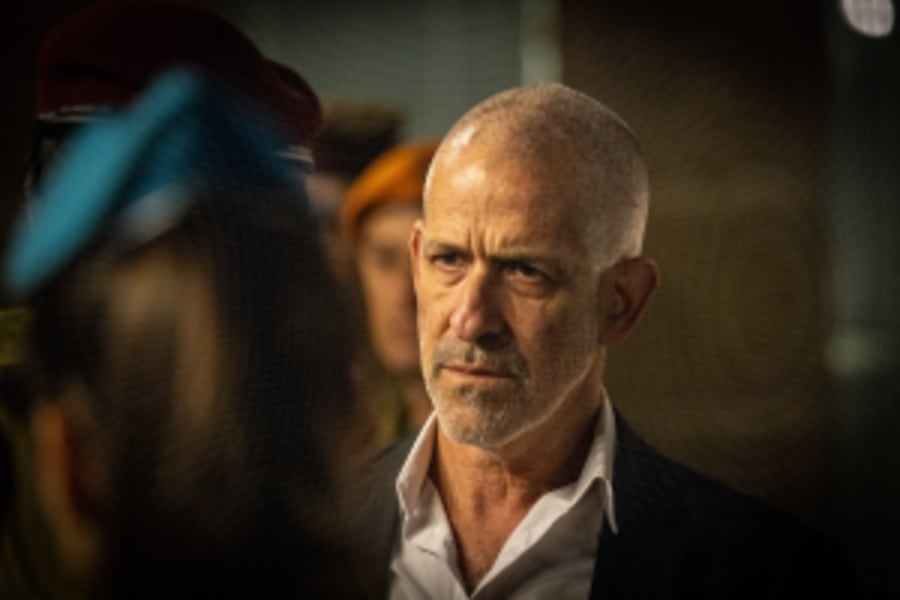Netanyahu’s first day of testimony: PM ridicules accusations, denies any wrongdoing
Testimony of PM and witnesses on his behalf is expected to continue for months

In an historic first, the sitting prime minister of Israel testified as a defendant on Tuesday, with Benjamin Netanyahu using his stage to combat the “ocean of absurdity,” as he put it, and denied any wrongdoing in the three cases against him.
The testimony began with Netanyahu answering questions from his defense attorneys, as hundreds of the prime minister’s supporters and critics demonstrated outside the Tel Aviv courthouse, which was chosen for the testimony due to its fortified courtroom.
While the testimony was not live-streamed to the public, dozens of reporters inside the hall commented on every last development and published full-length quotes by Netanyahu on their social media accounts, practically in real time.
Special attention was paid to several envelopes, some of them marked “top secret,” which the prime minister was handed by his aides during the testimony.
Despite his team criticizing the court’s denial of a request to delay the testimony due to the war and the recent developments in Syria, which he called an “earthquake,” Netanyahu asserted that he would be able to fulfill his duties as prime minister during the trial.
“This event requires the handing of notes during the testimony. It requires my attention, and I thought that this would be better to find a balance between the needs of the law, which I am aware of, and the needs of the state.”
Netanyahu eagerly used the stage afforded to him to sharply attack the Israeli press, ridicule the charges against him as “absurd,” and laud his free-market policies in the fields of media and the economy – key components of his defense against allegations that he accepted bribes to secure favorable media coverage.
“I read the materials for the trial and I am amazed by the magnitude of the absurdity. An ocean of absurdity and I want to talk about it,” he began.
He dismissed the charges that he sought bribes in the form of champagne and cigars as preposterous, arguing that he gains no personal perks from his position. He claimed his demanding schedule forces him to eat at his desk and leaves him no time to smoke uninterrupted.
“To depict [my wife] Sara and me as living the good life, isn’t merely absurd, not merely a distortion, it’s shameful and disgraceful.”
He also mentioned that he “loathes” champagne: “I simply don’t like it and I can’t drink it,” he asserted.
Commenting on Case 4000, which accuses Netanyahu of smoothing regulatory issues in a business merger for Shaul Elovitch, who also owned the Walla News outlet, the prime minister launched into another of his well-known tirades against the Israeli media landscape.
“A media party was gradually created here, which engineers the minds to change reality. This reflects a significant part of the journalists. They are a party to the conflict,” Netanyahu said.
In his opening statement, Netanyahu's lawyer, Amit Hadad, accused the prosecution of conducting a Soviet-style campaign. He argued that the investigators “did not investigate a crime; they investigated a man,” asserting that when no crime was found, one was fabricated.
Netanyahu also said that he didn’t remember signing authorizations favoring Elovitch, noting he had signed “thousands” of such documents and, in general, arguing that he only pursued beneficial free-market economic policies.
The prime minister didn’t deny seeking to improve the coverage he received from Walla but insisted that this was a critical part of democracy, comparing his actions to those of American founding fathers Thomas Jefferson and Alexander Hamilton. However, he disputed having done so while bribing Elovitch as part of a collusion with him.
“I didn’t act in this way in order to glorify myself, but because I wanted public support for my positions,” he testified.
“I wanted them to give support to the policies that I want. What’s the point of having authority? What for? To sit on a chair? There are more comfortable chairs in the world. You come to influence policy.”
Tuesday’s testimony was the first part of the main investigation, which is expected to continue for several weeks.
After this, defense attorneys of the other defendants, Shaul and Iris Elovitch and Noni Mozes, will question Netanyahu, and he will be allowed to call witnesses on his behalf, which could last several more months.
In the next phase, Netanyahu will be cross-examined by the prosecutor's office.

The All Israel News Staff is a team of journalists in Israel.
You might also like to read this:















